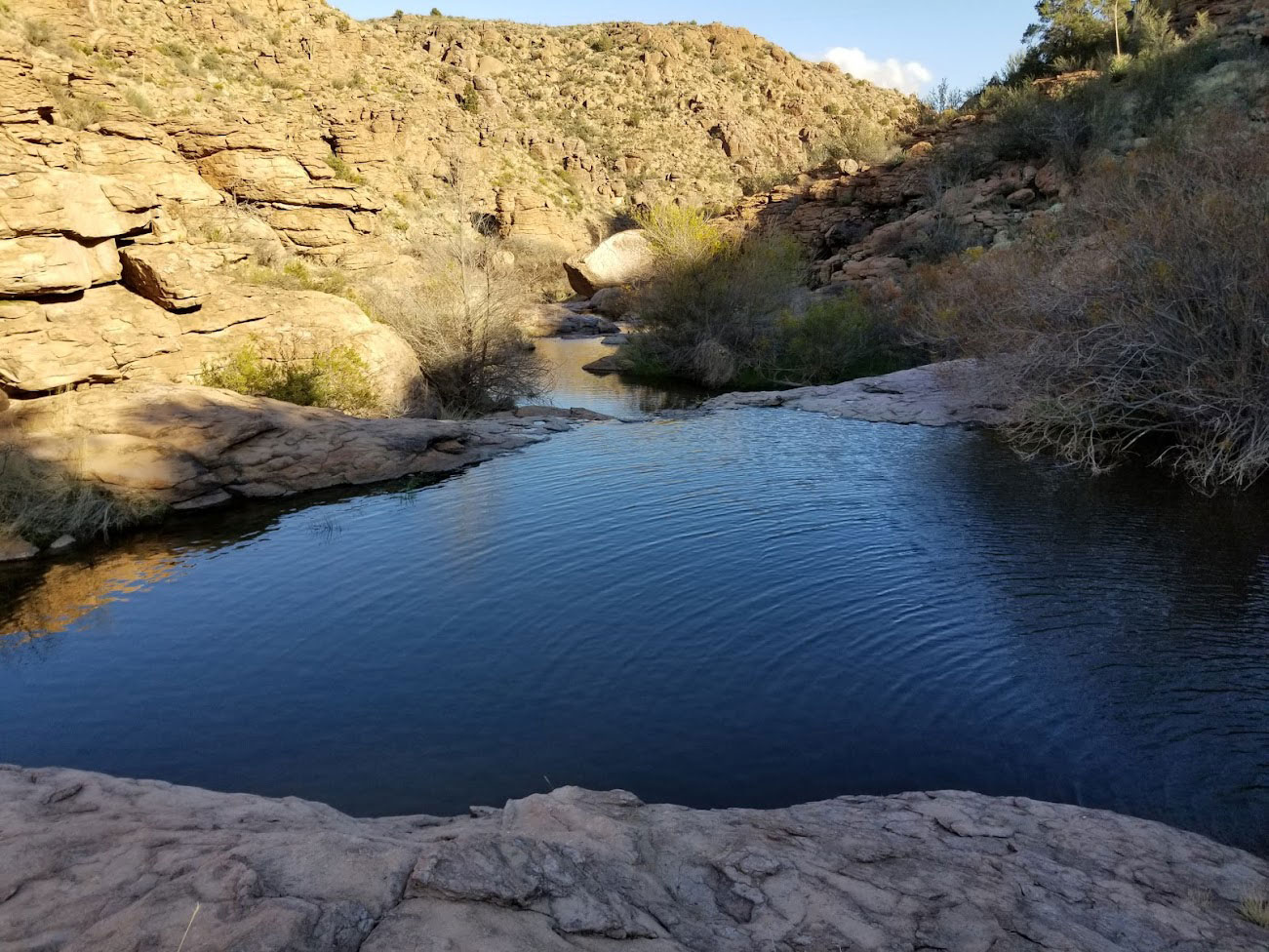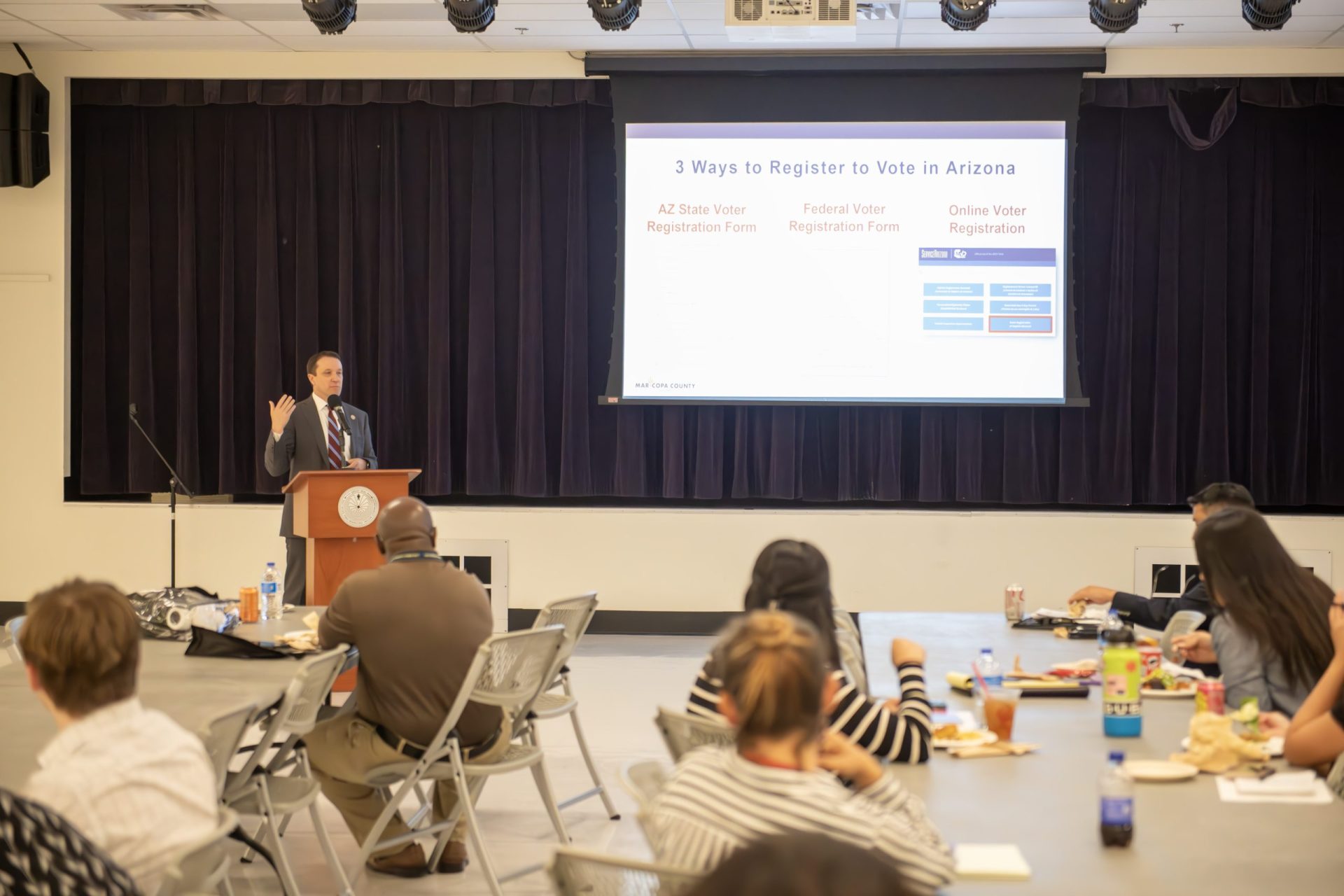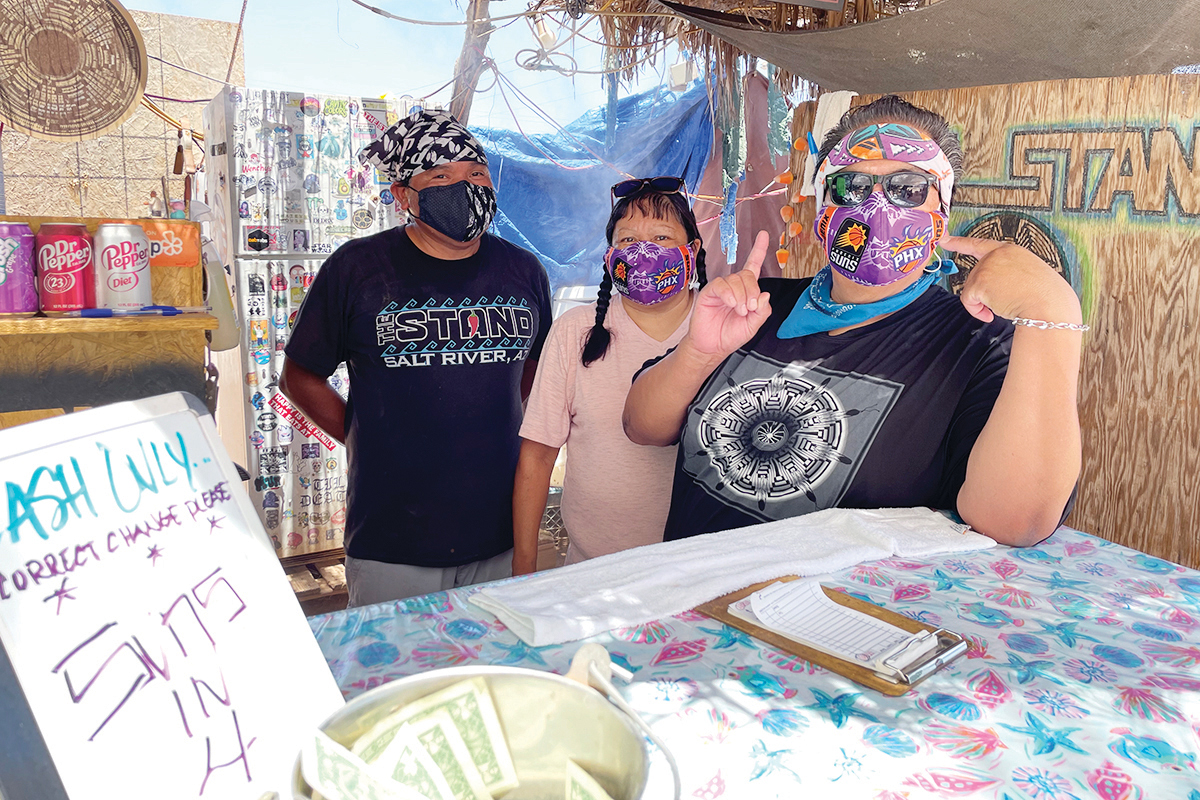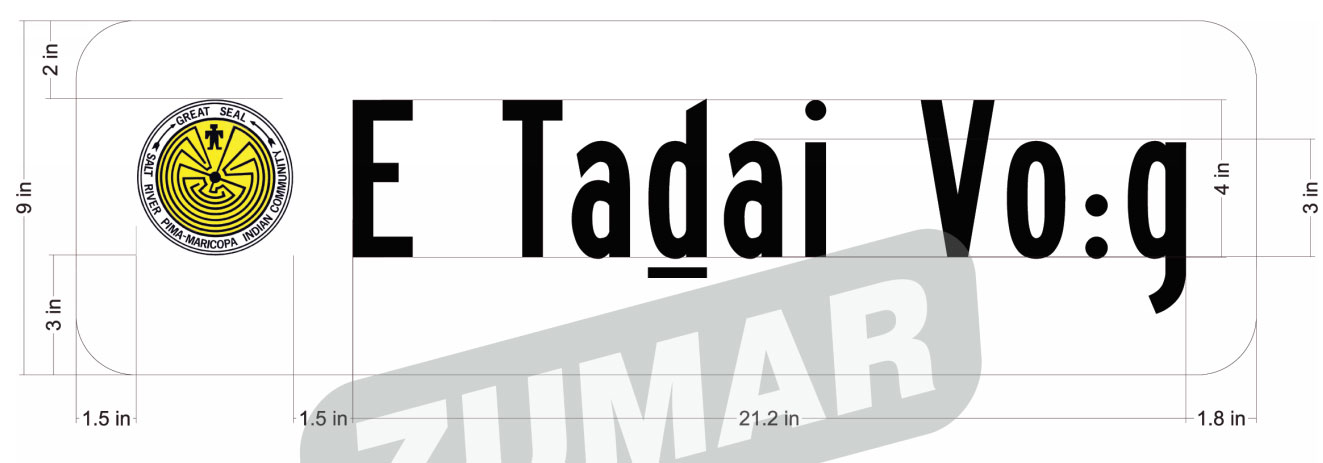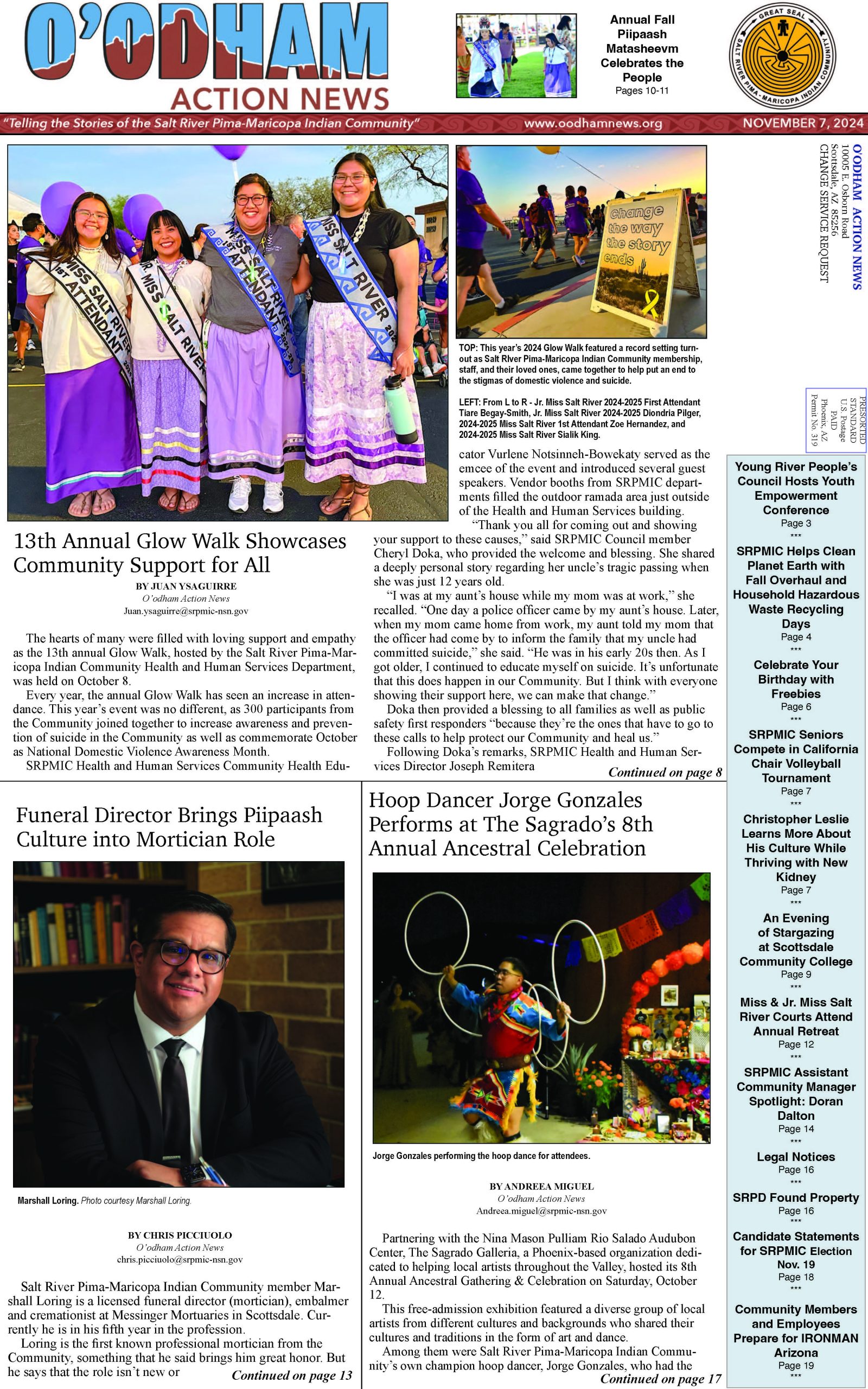VIEWS: 1519
October 21, 2022Bureau of Land Management Reviews Resolution Copper Study at Oak Flat
At the request of the Department of Agriculture–U.S. Forest Service, the Bureau of Land Management (BLM) recently provided a technical review of the 2021 Final Environmental Impact Statement (FEIS) for the Resolution Copper Project and Land Exchange in regard to the proposed copper mine at Oak Flat.
The mine would extract an estimated available 1,970 billion tons copper from Oak Flat, a site just northeast of Superior which holds cultural and religious significance to the Apache, O’odham and other tribes. A group called Apache Stronghold has been authorized by the San Carlos Apache Tribe to work to keep the project from moving forward.
For Western Apaches, Oak Flat is a place for water use, prayer, ceremonies, and gathering of medicinal plants, animals and minerals. The O’odham traveled and traded widely near Oak Flat and beyond, and there is archaeological evidence of O’odham sites on or near the Oak Flat area.
A team of BLM hydrology specialists reviewed the hydrology and water resources aspects of the project and assessed whether the FEIS adequately addressed comments and questions raised by the Salt River Pima-Maricopa Indian Community, other tribes and local governments.
The SRPMIC Tribal Historic Preservation Office wants to ensure that the studies used in the Forest Service’s record of decision, which would move forward with the land exchange, are completely without undue influence and are not conflicts of interest for the Forest Service.
The BLM concluded that the final report “often reads as incomplete and subjective in its preferred approaches” and “did not meet the analysis standards of the [National Environmental Policy Act], or suffered from insufficient evaluation or unsupported conclusions.”
Shane Anton, SRPMIC tribal historic preservation officer, said that transparency will be achieved if the study is done by a hydrologist that has no connection or association with mine operators Rio Tinto/Resolution Copper/BHP or the Forest Service.
“While there are other cultural reasons we oppose the mine, one of the basic necessities for tribes is water,” said Anton. “Our own description of who we are—‘On Akimel O’odham’… Salt River People—should indicate our intimate association with and reverence for water.”
Anton continued, “[We are a] water-specific group; water is part of our identity, and it would be culturally harmful, if not catastrophic, to lose even more water than is necessary for our survival and identity. The past study did no ethnographic work or [address the] tribal cultural view of water; therefore, it is ‘incomplete and severely deficient.’”
Running Deer of the O’odham Piipaash Alliance group wants the Community to be aware of the threat that Resolution Copper poses to the river and ancestors.
“We must remember who we are and what our ancestors worked for us to be,” Running Deer said. “I pray that more voices speak up for Oak Flat to protect our history, identity and way of life.”
The Ninth Circuit Court of Appeals’ Decision
On June 24, the Ninth Circuit Court of Appeals made a 2-1 decision on Apache Stronghold v. United States to not protect Oak Flat from Resolution Copper’s plan for a mine.
The panel recognized the deep ties that the Apache have to Oak Flat, and acknowledged that the land exchange to Resolution Copper may impact the Apaches’ plans to worship at Oak Flat, “but the [Religious Freedom Restoration Act (RFRA)], the Free Exercise Clause, and the 1852 Treaty of Santa Fe do not afford Apache Stronghold the relief that it seeks.”
Also, according to the panel, Apache Stronghold’s claim that going forward with the mine would constitute a “substantial burden” was denied by the government.
Judge Marsha Berzon dissented, writing that the majority applied an overly restrictive test for identifying a “substantial burden” on religious exercise under the RFRA.
On September 13, Notre Dame Law School’s Religious Liberty Clinic filed an amicus curiae brief in the case, asking the court to protect Oak Flat. An amicus brief can be filed by an individual or organization that is not party to a legal case but that is permitted to assist a court by offering information or expertise. The brief argues that a review is warranted “because the panel’s decision perpetuates a long history of abuses toward Native peoples by misapplying [the] Navajo Nation [case] and creating a harmful double standard. The government’s argument, not accepted by the panel, that the land exchange rider is exempt from RFRA altogether is flatly inconsistent with Supreme Court precedent.”

